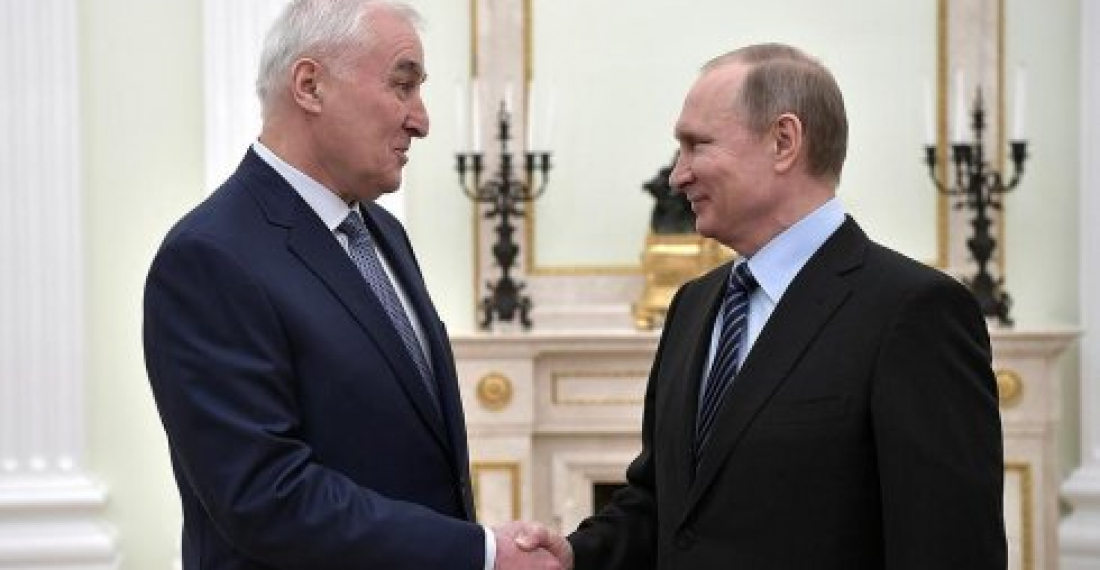The Russian leader received the president of the de facto government of South Ossetia on Tuesday, ahead of elections in the territory.
Russian President Vladimir Putin received the de facto President of South Ossetia, Leonid Tibilov, in the Kremlin on Tuesday (21 March), ahead of Presidential elections in the territory which has been the centre of Russian policy in the South Caucasus for the last two decades. President Putin told Tibilov that "Russia and South Ossetia have built truly allied bilateral relations". Hinting to problems of corruption in the disbursement of Russian aid to the territory that have poisoned the relationship over the last decade, Putin added, "As always in a large-scale effort, there are issues that require our special attention. We are generally pleased that the situation in your country is stabilising. We can even say it has stabilised now."
According to Putin, issues of security and greater defence capability and socio-economic issues such as improving the standard of living were on the agenda. Referring to the forthcoming elections in the territory scheduled for April, Putin told Tibilov "I wish you good luck. I hope the voting will proceed in accordance with the current constitution, in strict compliance with the laws of South Ossetia, and will ultimately lead to a new, favourable environment for development".
In his reply, Leonid Tibilov referred to the Treaty on Alliance and Integration signed between Russia and South Ossetia in 2015. "We have developed a tradition to meet almost annually to discuss various aspects of the bilateral agenda, including, of course, our alliance and development, as well as integration between South Ossetia and Russia", Tibilov told Putin.
"Today, I would also like to say that major and successful work has been done over these two years to implement the Treaty: it is filled with new agreements, many of them are already in effect, and the people have already felt the results of these agreements. You know, these agreements are not just about a specific area of work: they also mean security, confidence in the future, continuation of work on the country's socio-economic development, and cooperation in the humanitarian sphere."
Editorial note: South Ossetia seceeded from Georgia during a violent conflict in the early 1990s. Following a short war between Russia and Georgia in August 2008 Russia recognised South Ossetia as an independent state. Except for two or three other countries, the rest of the international comunity still recognise South Ossetia as part of Georgia.
source: commonspace.eu with Kremlin.ru
photo: President Putin of Russia received the de facto President of South Ossetia Leonid Tibilov, in the Kremlin on 21 March 2017 (picture courtesy of the press service of the President of Russia)






